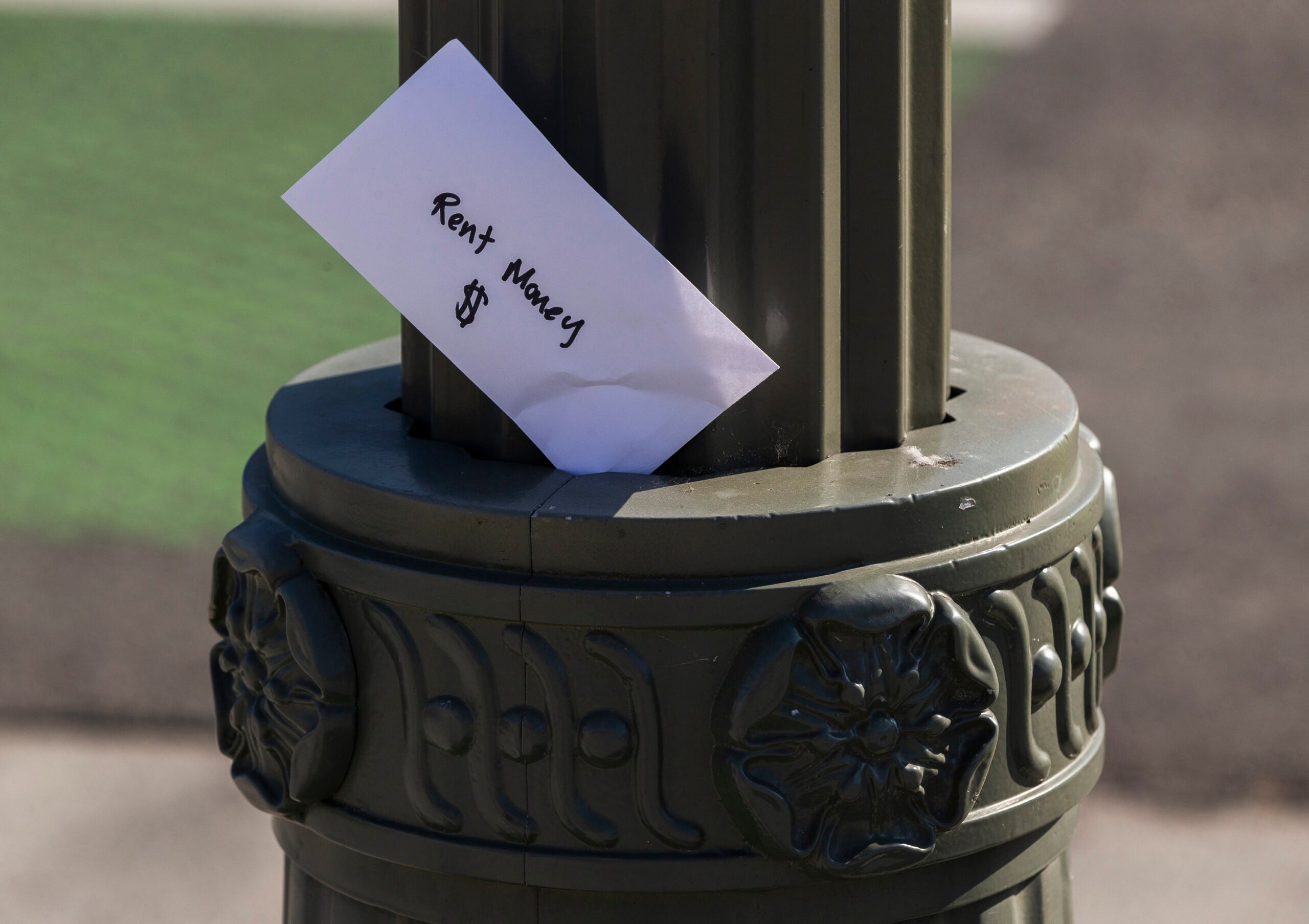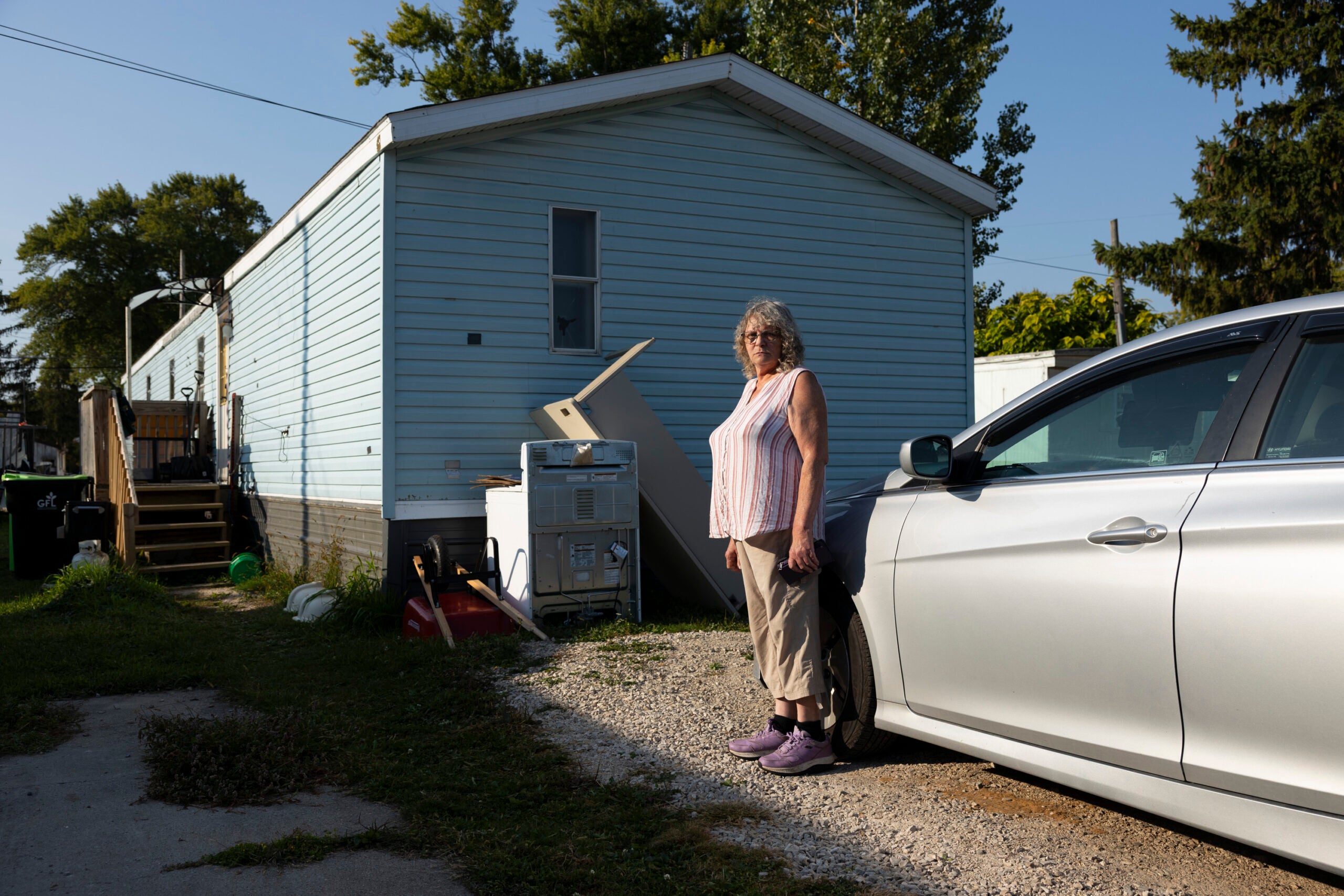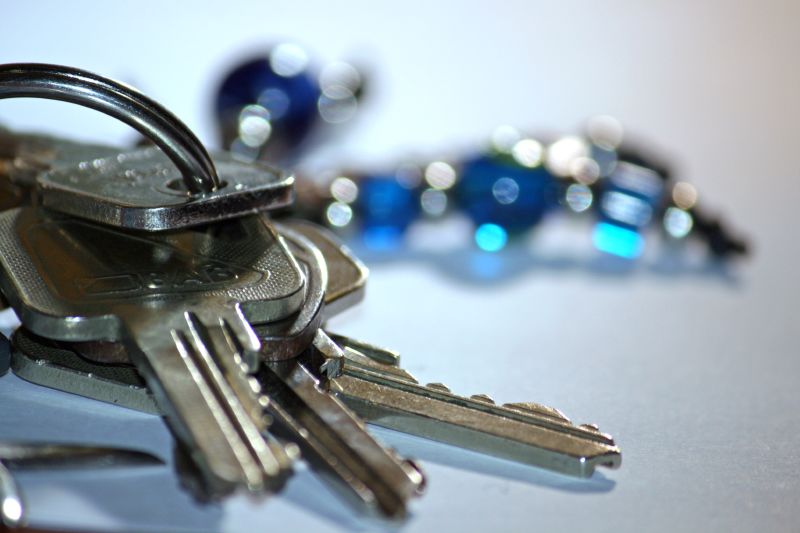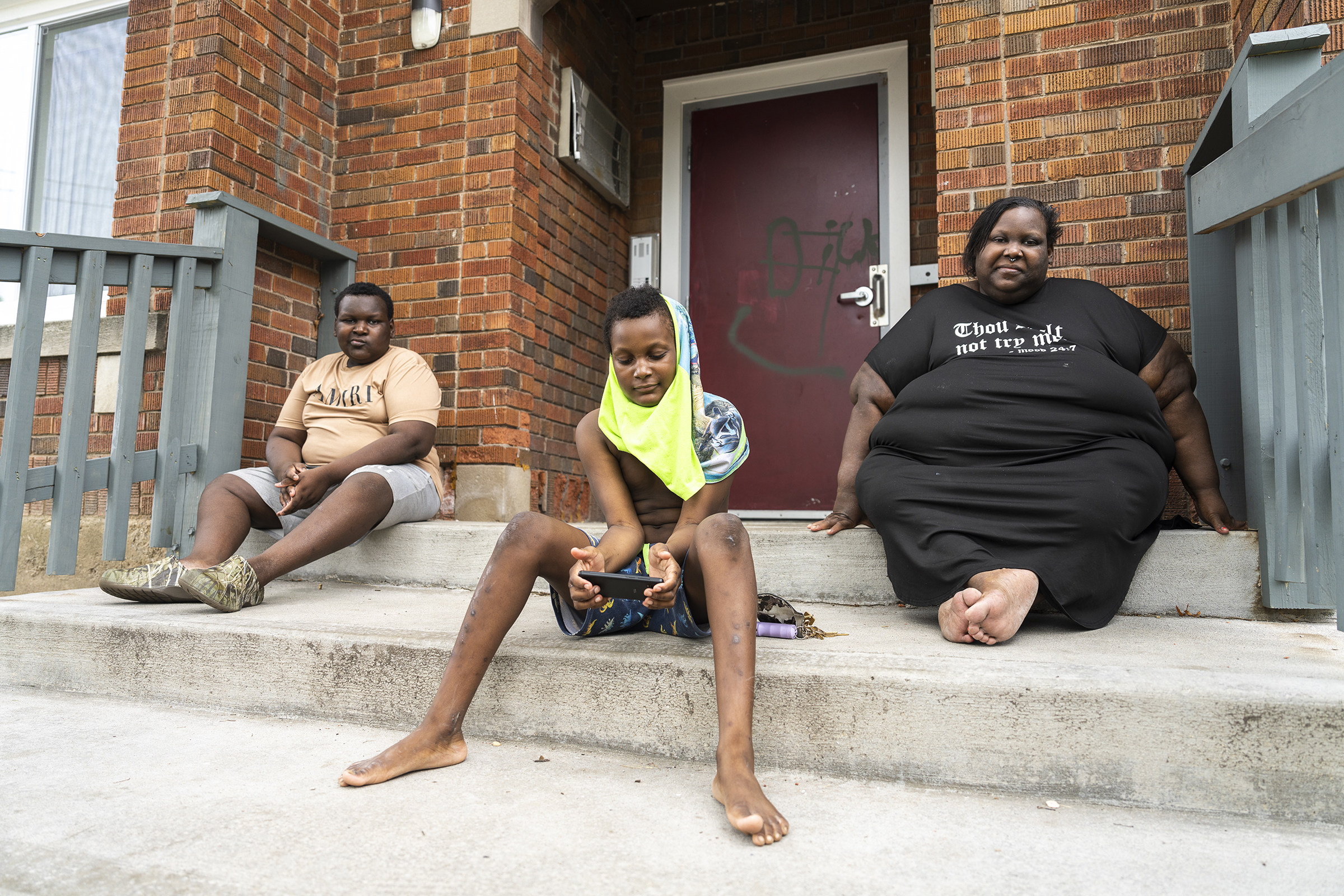With unemployment claims at record highs in Wisconsin, a number of people are unsure how they’re going to pay the bills during the coronavirus pandemic. One of the highest monthly costs for people are mortgage or rent. In fact, a recent study found that a third of renters didn’t pay their rent at the beginning of April 2020.
A number of questions about housing have been shared with WPR’s WHYsconsin. So, we talked with several experts about how to pay for housing expenses, what to do about showing a house or apartment, and what to do if you’re being removed from your home.
Wisconsin’s eviction moratorium lasts until May 26. What happens May 27?
News with a little more humanity
WPR’s “Wisconsin Today” newsletter keeps you connected to the state you love without feeling overwhelmed. No paywall. No agenda. No corporate filter.
Emergency Order No. 15 has suspended evictions in Wisconsin through Tuesday, May 26. The federal government has also issued an eviction moratorium.
People can be evicted for not paying their rent or violating a lease agreement, like keeping an unauthorized pet in the home. The eviction process involves multiple steps in Wisconsin, so it’s unlikely people will be out of their homes Wednesday, May 27. But, legal experts and some communities, like Janesville, are preparing for an eventual increase in evictions.
“On May 27, hopefully, lessors and lessees will have worked out things in order to have a smooth transition into — what I hope is — a much more normal world,” said Mitch, a University of Wisconsin-Madison Law School clinical professor and director of the Economic Justice Institute and Neighborhood Law Clinic. “But, I’m worried — like a lot of folks that do rental housing law — that on May 27, we may see a lot of lessors start to commence evictions against lessees. People could sue en masse starting on May 27. But as a lawyer, I would highly recommend people talk it through and not file.”
Raphael Ramos, an attorney and coordinator of Legal Action of Wisconsin’s Eviction Defense Project, said they expect to see an “avalanche” of eviction filings.
“When May 27 arrives, new eviction cases will still require landlords to issue notices terminating tenancy,” Ramos said. “When that notice arrives, it will often come in the form of a five-day pay or quit (i.e., move) notice. That notice gives the tenant a last chance to pay the rent owed before eviction cases are filed in court.”
What if a renter was going to be evicted before the pandemic began? Can they still be kicked out?
People cannot be removed from their homes through Tuesday, May 26, even if eviction proceedings began before the coronavirus pandemic impacted life as we know it.
“Eviction proceedings initiated prior to the ban and prior to closure of the courts will, in all likelihood, have had their cases adjourned already,” Ramos said. “In most cases, the court has indicated that they are providing judicial notice to people of their new court dates.”
We’ve heard from a lot of property owners and renters who ask, ‘What if renters can’t pay right now?’
Just because there is a moratorium on evictions does not mean there’s a moratorium on paying rent. Landlords still have to pay the bills — utilities, maintenance, insurance, property taxes. Generally, the largest monthly payment is their mortgage on the rental property.
The biggest piece of advice from experts? Renters and property owners need to talk it out.
“A rental agreement is a legal contract, you’re still obligated to pay rent,” Kurt Paulsen, associate professor in UW-Madison’s Department of Planning and Landscape Architecture, told WPR’s “Central Time.” “My best advice is for people suffering financially to talk with (their) landlord or property owner sooner than later. Many landlords are working out deals with renters to pay a portion of their rent or to delay payment for a while. But if you delay payment, you still have to pay that back in the future.”
Aside from communicating about a pay plan for the present, the two parties need to discuss what the plan is for May, June, July and onward.
“Right now — for a lot of folks who became unemployed — paying rent here in April has been very difficult. Paying rent for May or June may be even more difficult,” Mitch said. “I would encourage both renters and their lessors to connect with one another to discuss how to smooth the onramp back into normalcy when the moratorium ends. People will take into account that no one’s really late in the same type of culpable or irresponsible sort of way. No one wanted a global pandemic.”
Is there anywhere people can go for rent assistance?
Many people will soon be receiving the $1,200 relief checks from the federal government that could help with rent or mortgage payments.
Mitch suggests people who have lost their jobs file for unemployment benefits, since independent contractors now qualify and job search requirements have been relaxed.
“People who never thought they could get or literally never could qualify for unemployment are now eligible to receive unemployment,” Mitch said. “So, I would definitely encourage people to look into filing for unemployment. In Wisconsin, that’s done through the (state) Department of Workforce Development.”
The Wisconsin Housing and Economic Development Authority also has a number of resources for homeowners, renters and property managers.
Legal Action of Wisconsin’s Ramos also recommended reaching out to organizations providing assistance, like Impact 2-1-1 or Community Advocates in Milwaukee, although demand is likely high.
“The relief resource landscape is constantly changing right now, so people should keep on the lookout for new resources,” Ramos said.
Finally, it’s yet to be seen how Wisconsin cities will utilize the $37 million in community development block grants they received through the federal CARES Act. Part of that funding is supposed to help communities with “housing disruptions.”
What about back rent and late fees?
Property owners can tack on late fees at this time, and rent will continue to accrue.
“If rent or late fees are unpaid, tenants may find themselves subject to an eviction action once the ban is lifted and the courts reopen,” Ramos said. “Renters should pay rent if they can.”
Again, landlords and renters are encouraged to communicate and negotiate a payment plan.
What about small businesses that are having a hard time affording their rent?
The same rules apply for small business owners who are renting space. Wisconsin business owners cannot be evicted from a space through Tuesday, May 26.
But, Mitch notes small business owners have more relief available to them on top of the $1,200 stimulus checks.
“I definitely encourage people — well before the moratorium is up — to contact the (U.S.) Small Business Administration and look into the loans that the government has made available,” Mitch said. “Some of these loans can be forgiven.”
What if a landlord needs to show or enter an apartment?
Wisconsin’s safer-at-home order says, “Landlords or rental property managers shall avoid entering leased residential premises unless emergency maintenance is required.
Unless there’s something such as a major plumbing or electrical issue, then landlords should stay out of rented residential areas. Property managers can still enter common areas, such as lobbies or basements to access HVAC and plumbing. But tenants can refuse entry to their homes.
If a property owner needs to show an apartment or house to future renters, Mitch recommends owners work with current renters who can help set up digital showings.
“Ask them to take photos on their cell phone and send them so that you can post them and share them electronically,” Mitch said. “Not a lot of folks are going to want to come out and tour apartments during this crisis, as we’re all supposed to be social distancing. We’re all doing virtual meetings and remote instruction. There should be remote and virtual apartments showings and you have to do that in collaboration with your existing lessees.”
What if you can’t pay your mortgage?
The federal government has set up some protections for homeowners who have lost their jobs due to the coronavirus pandemic. Homeowners “should be eligible to have their mortgage payments reduced or suspended for up to 12 months,” according to NPR.
At the state level, banks and mortgage lenders cannot start a foreclosure nor can there be sheriff’s sales through Tuesday, May 26.
UW-Madison’s Paulsen encourages anyone experiencing financial difficulties to call their lender as soon as possible to get the conversation started.
“You can request 180 days of forbearance,” Paulsen said. “That means you can avoid making mortgage payments for up to 180 days. The company that owns your mortgage must give it to you. They cannot charge you extra fees or extra interest, and they cannot report that to a credit bureau. However, much like the rent, at the end of 180 days, you still will have to pay what you would have paid in principal and interest.”
He said mortgage lenders are swamped right now, so don’t give up if you don’t hear back immediately. Paulsen also recommends sending an email to start a paper trail.
After those 180 days, Paulsen said people have three options:
- Make a lump sum payment after 180 days. “This will likely be the case if you were able to get back to work,” Paulsen said.
- You can negotiate your repayment plan with your lender. “That might mean that you continue to make regular mortgage payments, but you add in a little bit each month to cover the backlog and maybe spread that over two or three years,” Paulsen said.
- Do a full loan modification or refinance with your lender. “Some lenders have already said if you’re in good credit already and you were current on your mortgage, they may just modify your loan to add those additional three or six months to the end of the loan, so it just extends the term,” Paulsen said.
These same suggestions apply to small business owners and people who own rental properties.
Can realtors do in-person showings?
Maybe. Under the state’s safer-at-home order, real estate services are deemed essential, but the order also restricts the ability of a landlord to enter into a property except for situations requiring emergency maintenance.
That being said, the safer-at-home order does require that “Essential Businesses and Operations shall, to the greatest extent possible, use technology to avoid meeting in person.”
“Parties should be strongly encouraged to pursue alternative means of showing a property,” Ramos said. “This is of particular import for people more vulnerable to COVID-19 (e.g., the immunocompromised or elderly).”
The Wisconsin Realtors Association has provided guidance to its members and encourages everyone to use safe practices. While they haven’t issued official policies for all realtors, they have provided resources and suggestions.
Each real estate broker can develop its own policies. For example, Madison-based Stark Realty is offering services such as online client consultations, virtual showings and remote offers.
What if you can’t afford to pay utility bills?
First, contact your utility to start the conversation about your payment options.
Currently, regulated utilities — gas, water, and electric — cannot be disconnected if someone is unable to pay their bills. This stems from Emergency Order No. 11, a state Public Service Commission (PSC) rules suspension, and lasts until Gov. Tony Evers lifts the public health emergency.
Unregulated utility cooperatives and propane providers don’t fall under this order. But, PSC spokesperson Matt Sweeney said, all utility cooperatives in Wisconsin are voluntarily complying.
As for late fees, those are also temporarily suspended. As noted in the order, public utilities can’t charge late payment fees through the public health emergency.
This doesn’t mean utility bills will be eliminated. If a customer is having difficulties paying their bills, utilities must set up a deferred payment plan. This could help space out customer payments over a period of time.
If you can still afford to pay your utility bill, the PSC encourages you to do so.
“It’s better to continue to pay now if you can, than have a huge bill due when the public health emergency is over,” Sweeney said.
Is there assistance to help pay utility bills?
Yes. Looking through the state’s Energy Assistance Programs is a good start.
The Citizens Utility Board of Wisconsin has also provided a number of resources for customers seeking information on utility and internet bills. In an email, CUB executive director Tom Content pointed toward programs like Low Income Home Energy Assistance Program funding through the Wisconsin Energy Assistance Program and ways to save on cell phone and internet bills.






